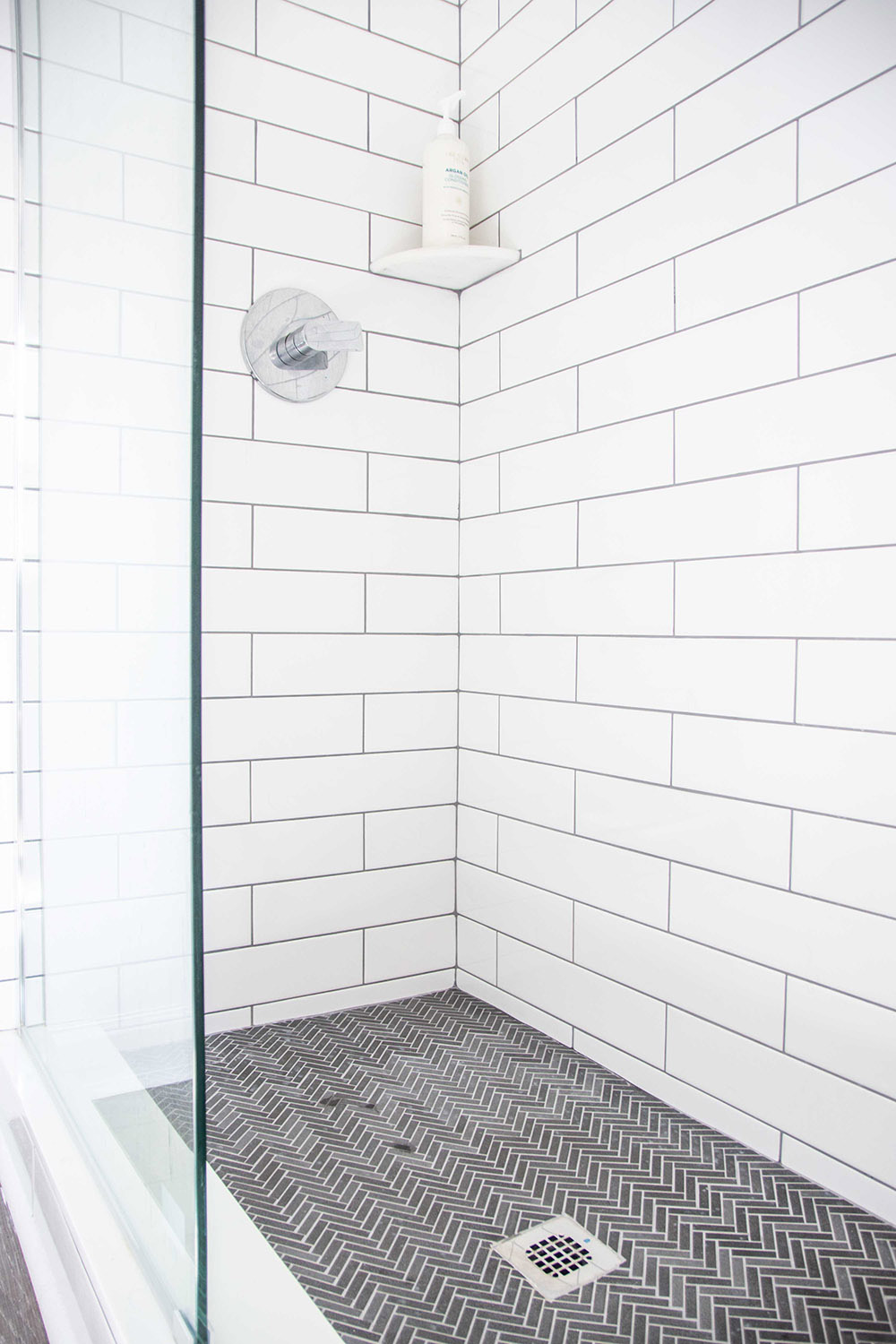Stepping into a sparkling clean shower, with its inviting tile floor, is a delightful way to start or end your day. But choosing the right tile for your shower floor is crucial. It needs to be durable, waterproof, slip-resistant, and aesthetically pleasing. With so many tile options available, navigating this decision can feel overwhelming. Fear not! This comprehensive guide will equip you with the knowledge to select the perfect tile for your shower floor, ensuring both functionality and style.

Image: viewfloor.co
From the classic appeal of ceramic tiles to the luxurious feel of natural stone, the world of shower floor tiles is diverse and captivating. By understanding the unique characteristics of each material and considering your personal preferences, you can make an informed choice that complements your bathroom design and stands the test of time.
Understanding the Key Considerations
Before diving into the plethora of tile types, let’s explore the essential factors you should consider:
1. Durability and Water Resistance:
Your shower floor tile must withstand the constant exposure to water and the wear and tear of daily use. Look for tiles with a low water absorption rate, meaning they won’t soak up moisture and become susceptible to damage or mold growth. Tiles with a PEI rating (Porcelain Enamel Institute) of 3 or higher are generally recommended for shower floors, indicating their resistance to abrasion.
2. Slip Resistance:
Safety is paramount in the shower, especially when the floor is wet. Tiles with a textured surface or a high coefficient of friction (COF) are less slippery and provide a more secure footing. Look for tiles labeled as “anti-slip” or “slip-resistant” to ensure a safe showering experience.

Image: www.pinterest.fr
3. Aesthetics:
Your shower floor tile should complement the overall style of your bathroom. Do you prefer a clean and minimalist look or a rustic and earthy feel? Consider the color, pattern, and size of the tiles to create a cohesive and visually appealing space.
4. Maintenance:
Different tile materials require different levels of maintenance. Some tiles may require regular sealing to prevent staining and water absorption. Assess your willingness and ability to maintain the tile before making your selection.
The Most Popular Tile Options for Your Shower Floor
Now, let’s explore the most popular tile materials for shower floors, outlining their strengths and weaknesses:
1. Ceramic Tile:
Ceramic tile is a classic and cost-effective choice for shower floors. It’s durable, water-resistant, and comes in a vast array of colors, patterns, and textures. Ceramic tiles are also relatively easy to maintain and can be cleaned with mild detergents. However, they are less resistant to scratches and chips than some other materials.
2. Porcelain Tile:
Porcelain tile is a denser and harder variation of ceramic tile, making it more durable and scratch-resistant. It’s an excellent choice for high-traffic areas, like shower floors. Porcelain tiles are also highly water-resistant, making them ideal for wet environments. They come in a variety of styles and colors, offering flexibility in design.
3. Natural Stone Tile:
Natural stone tiles, such as marble, granite, slate, and travertine, add a touch of elegance and sophistication to any bathroom. They are highly durable and water-resistant, but they can be more expensive than other materials. Natural stone tiles require regular sealing to prevent staining and water absorption. Be mindful of the potential for slip hazards, as some natural stone tiles can be quite slick when wet.
4. Glass Tile:
Glass tile is a unique and visually stunning option for shower floors. Its reflective properties can make a small bathroom feel more spacious. Glass tiles are highly water-resistant and come in a wide range of colors and patterns. However, they can be more fragile than other tile materials and may require more meticulous maintenance.
5. Mosaic Tile:
Mosaic tiles are small tiles that can be arranged to create intricate patterns and designs. They come in a variety of materials, including ceramic, porcelain, glass, and stone. Mosaic tiles are a great option for adding visual interest and personality to your shower floor. However, they can be more time-consuming and labor-intensive to install than other tile types.
Additional Tips for Selecting Your Shower Floor Tile
To ensure a successful shower floor tile installation, consider the following tips:
1. Consult with a Professional:
Before making any major decisions, consult with a qualified tile installer or contractor. They can provide valuable insights based on your specific bathroom layout, budget, and desired style.
2. Consider Your Bathroom’s Lighting:
The lighting in your bathroom will affect how the tile color and pattern appear. Consider the natural light, artificial light sources, and the overall ambiance you want to create.
3. Check for Tile Certifications:
To ensure your tiles meet safety standards, look for certifications from reputable organizations, such as the Porcelain Enamel Institute (PEI) or the National Floor Covering Association (NFCA).
4. Don’t Overlook Grout:
Grout is the material used to fill the gaps between tiles. Choose a grout color and material that complements your tile selection and provides a durable seal. Consider using epoxy grout, which is more stain-resistant and water-resistant than traditional cement grout.
5. Plan for Expansion and Contraction:
All tile materials expand and contract slightly with changes in temperature. Ensure that your tile installer creates expansion joints to accommodate this movement, preventing potential cracking or damage.
Best Tile To Use On Shower Floor
https://youtube.com/watch?v=AQBquj4dk7I
In Conclusion
Choosing the best tile for your shower floor is a crucial decision that involves several considerations, including durability, water resistance, slip resistance, aesthetics, and maintenance. By understanding the different tile materials and their unique properties, and by considering your individual needs and preferences, you can make an informed choice that will elevate your bathroom’s style and functionality for years to come.





